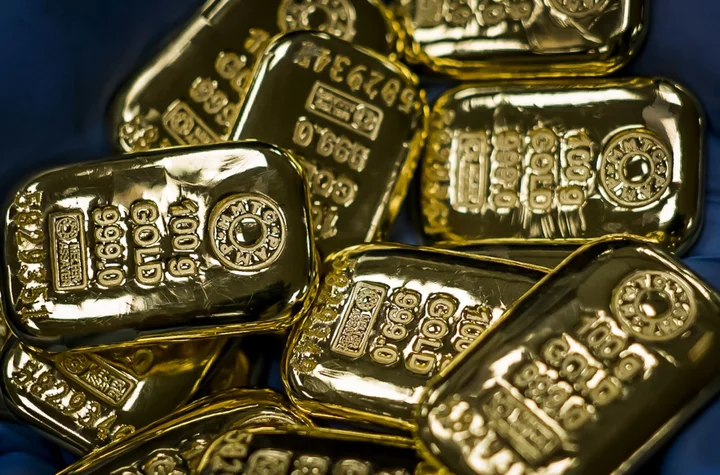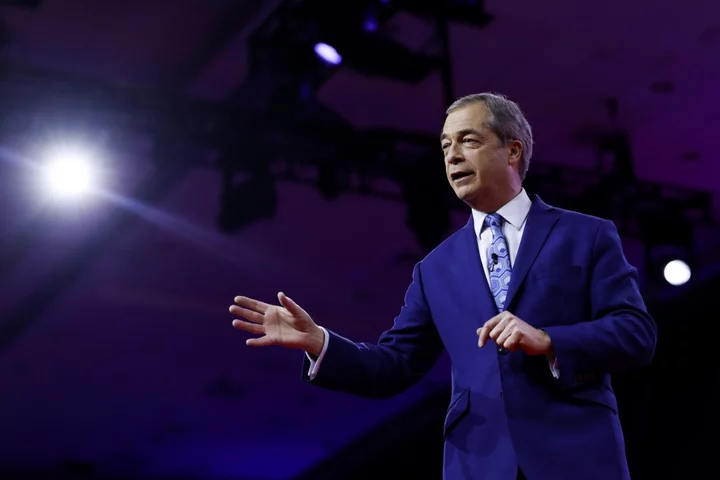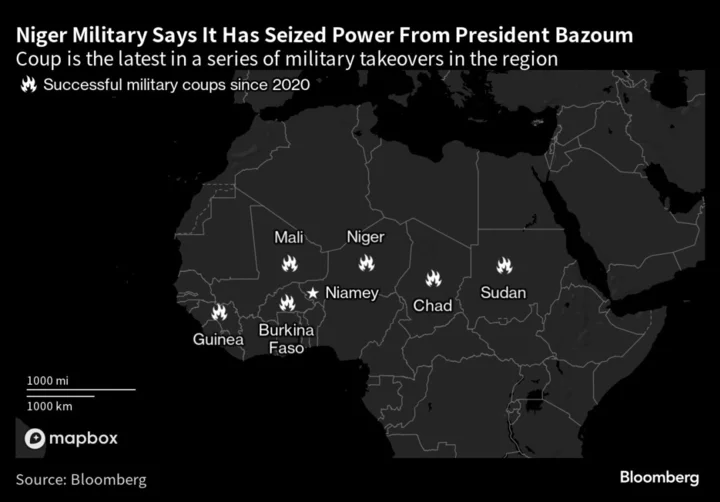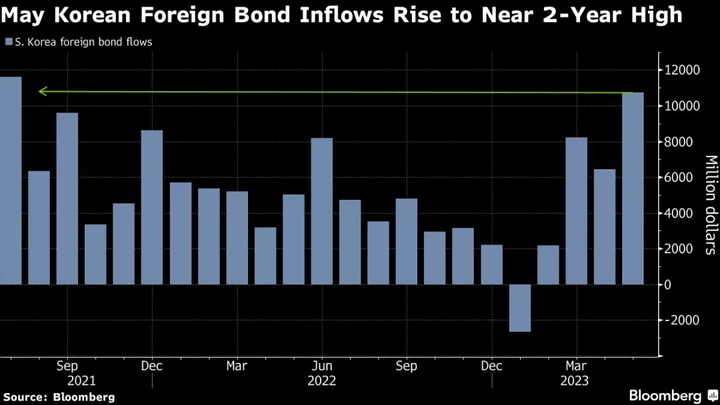Gold held gains as conflict in the Middle East continued to roil markets, while investors considered whether tightening financial conditions may have reached a peak following dovish commentary from Federal Reserve officials.
The precious metal steadied after jumping 1.6% on Monday, the most since May, as haven demand surged on the back of Hamas’s shock attack on Israel at the weekend. Comex gold implied volatility picked up on Monday while December futures rose the most since August, stoked by the geopolitical tensions.
Bullion is also benefiting from a shift in mindset over the rate outlook. US policymakers are coalescing around the idea that the recent surge in US Treasury yields — which went into reverse on Tuesday — may substitute for additional increases in their benchmark interest rate. Higher rates are generally negative for non-interest bearing gold.
Still, bullion’s longer-term performance will depend on whether there is deeper economic and financial fallout from the Middle East crisis, RBC Capital Markets LLC strategist Christopher Louney said in a note. The bank in September raised its base case outlook for the metal on a view that monetary policy will eventually turn as economic growth slows.
“Amidst oil’s price gains, we also highlight the potential implications that related price inflation and heightened uncertainty could have for the Fed and thus gold,” he wrote. “Given our current gold outlook and the move higher in risks, we may have seen a quarterly low already.”
Spot gold was 0.1% higher at $1,862.71 an ounce as of 8:22 a.m. in Singapore. The Bloomberg Dollar Spot Index was little changed. Silver dipped, while palladium and platinum edged higher.









